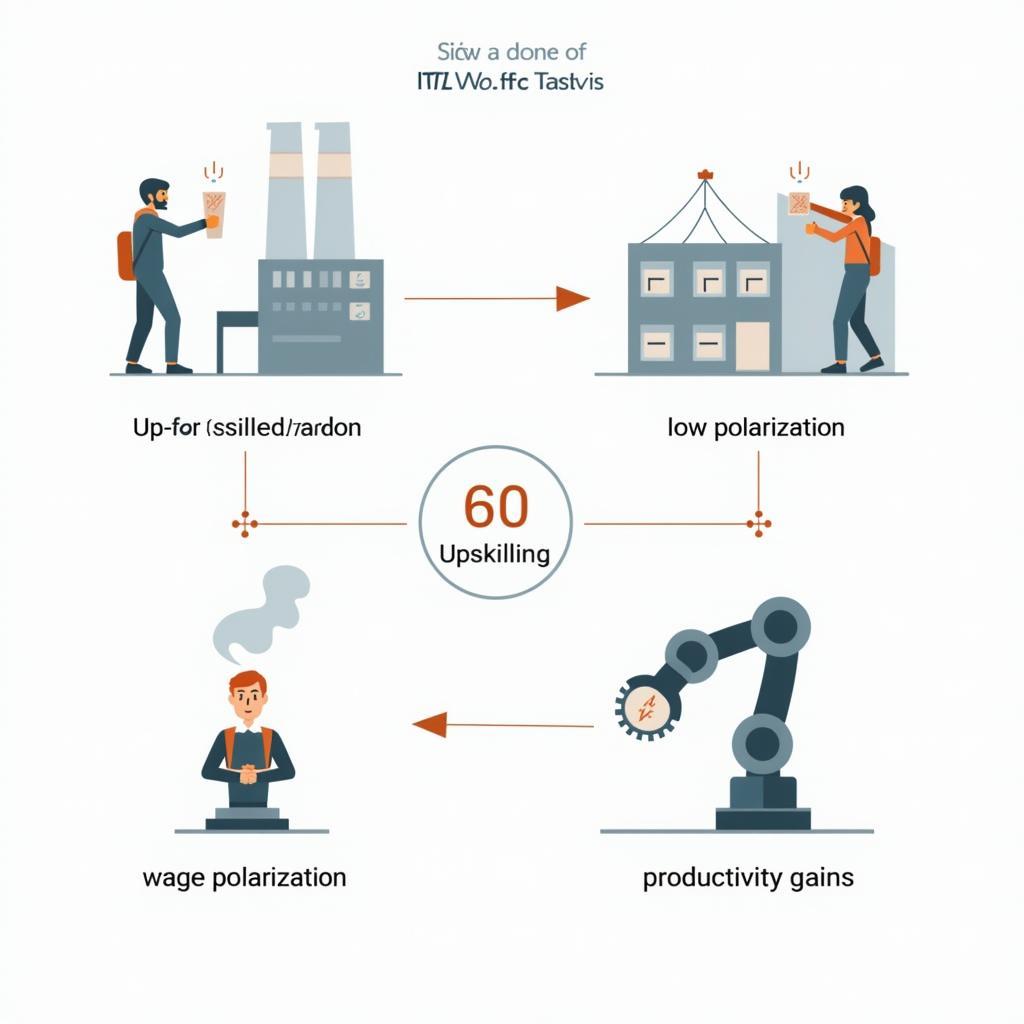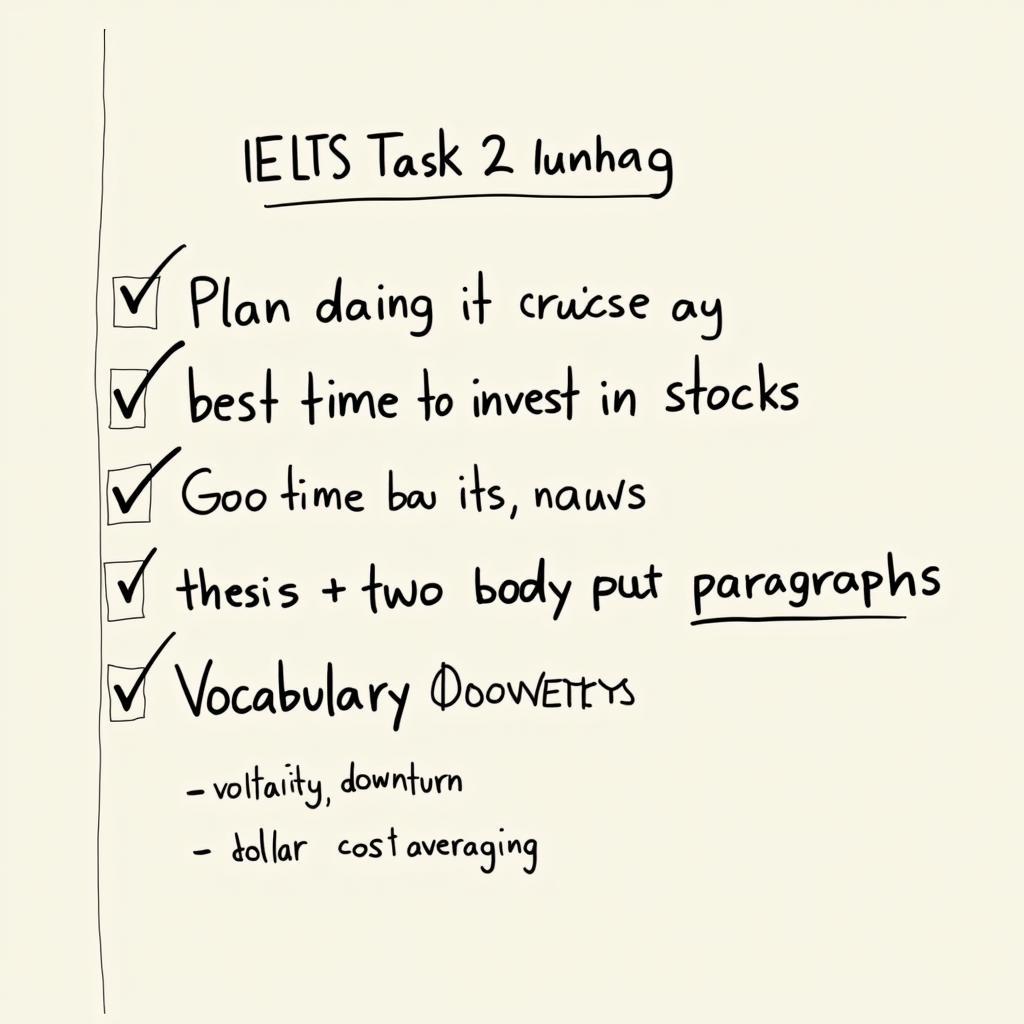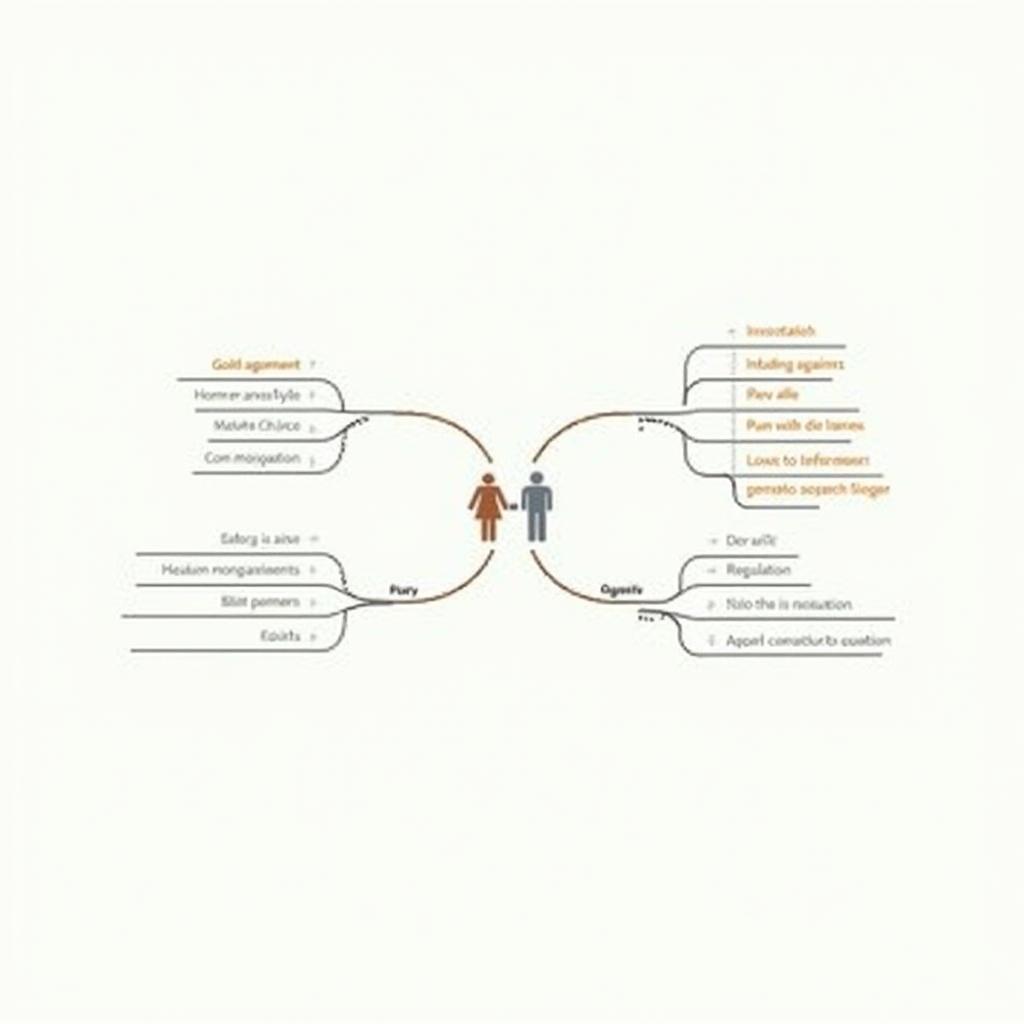Mở bài
Chủ đề Importance Of Transparency In Financial Transactions (tầm quan trọng của minh bạch trong các giao dịch tài chính) xuất hiện ngày càng thường xuyên trong IELTS Writing Task 2, đặc biệt khi bài thi cập nhật xu hướng xã hội không tiền mặt, thanh toán số và trách nhiệm giải trình ngân sách. Nắm vững chủ điểm này giúp bạn xử lý trôi chảy các đề “cashless society”, “anti-corruption”, “privacy vs security” và “public accountability”.
Trong bài viết này, bạn sẽ học:
- 3 bài mẫu hoàn chỉnh (Band 8-9, 6.5-7, 5-6) kèm phân tích chấm điểm chi tiết theo 4 tiêu chí
- Từ vựng chủ đề, collocations học thuật và cấu trúc câu dễ ăn điểm
- Checklist tự đánh giá trước-trong-sau khi viết và mẹo quản lý thời gian
Một số đề thi thực tế đã được xác minh và liên quan:
- IELTS Liz (Cashless society Topic): “In many countries people are using less cash. Do the advantages of cashless payments outweigh the disadvantages?”
- IELTS-Blog (Reported Task 2): “Governments should be transparent about how taxpayers’ money is spent. To what extent do you agree or disagree?”
- IDP/British Council nguồn luyện tập chủ đề công nghệ – quyền riêng tư: “As people rely more on digital systems, concerns about data privacy grow. Discuss both views and give your opinion.”
[internal_link: IELTS Writing Task 2 opinion]
[internal_link: Bài mẫu IELTS chủ đề cashless society]
[internal_link: Cách lập dàn ý Task 2]
1. Đề Writing Part 2
In an increasingly cashless world, making every financial transaction transparent is seen by some as essential to reduce corruption and financial crime, while others argue it threatens privacy and autonomy. Discuss both views and give your own opinion.
Dịch đề: [Trong một thế giới ngày càng ít dùng tiền mặt, việc khiến mọi giao dịch tài chính đều minh bạch được một số người xem là thiết yếu để giảm tham nhũng và tội phạm tài chính, trong khi những người khác cho rằng điều đó đe dọa quyền riêng tư và tính tự chủ. Hãy thảo luận cả hai quan điểm và đưa ra ý kiến của bạn.]
Phân tích đề bài:
- Dạng câu hỏi: Discuss both views and give your opinion (thảo luận hai quan điểm và đưa ra ý kiến). Bạn cần trình bày công bằng cả hai bên, sau đó nêu rõ lập trường.
- Thuật ngữ quan trọng:
- cashless world: xã hội không tiền mặt
- transparent financial transactions: giao dịch tài chính minh bạch
- financial crime: tội phạm tài chính (rửa tiền, gian lận)
- privacy and autonomy: quyền riêng tư và tính tự chủ cá nhân
- Lỗi thường gặp:
- Lệch trọng tâm, chỉ nói về cashless payments mà quên “transparency”.
- Nhầm lẫn “privacy” với “security”; dùng từ vựng đạo văn/không chính xác.
- Thiếu ví dụ cụ thể (anti-money laundering, audit trail, data safeguards).
- Cách tiếp cận:
- Mở bài: paraphrase + thesis rõ ràng nêu 2 phía và quan điểm của bạn.
- Thân bài 1: lợi ích của minh bạch (giảm tham nhũng, audit trail, răn đe).
- Thân bài 2: rủi ro quyền riêng tư (giám sát tràn lan, lạm dụng dữ liệu) + giải pháp cân bằng (safeguards, proportionality).
- Kết bài: khẳng định lập trường với điều kiện/ngoại lệ.
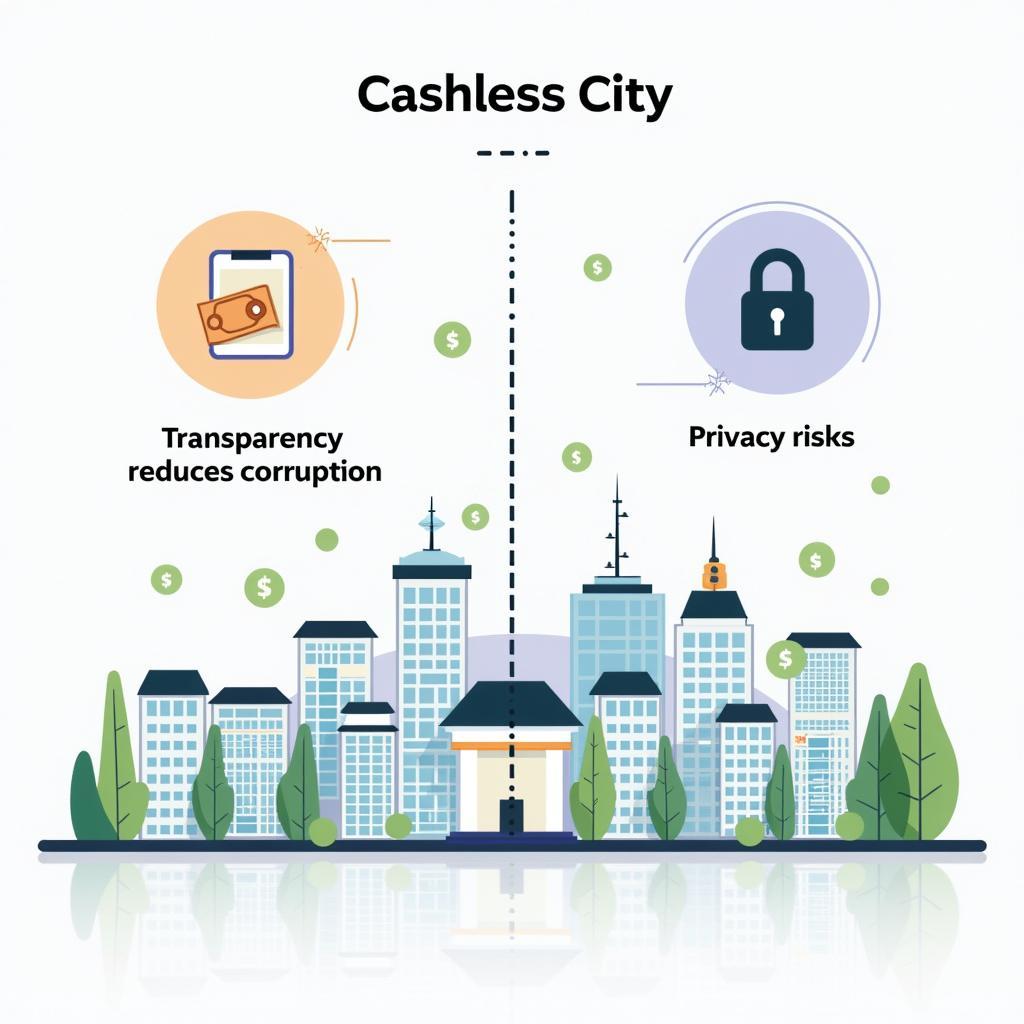 Minh họa importance of transparency in financial transactions và cashless society
Minh họa importance of transparency in financial transactions và cashless society
2. Bài mẫu Band 8-9: importance of transparency in financial transactions
Bài Band 8-9 cần: lập luận sâu, ví dụ xác đáng, từ vựng học thuật chính xác, liên kết logic, ngữ pháp đa dạng và tự nhiên.
Bài luận (khoảng 300 từ):
While a cashless economy can feel intrusive, the importance of transparency in financial transactions is difficult to overstate. Advocates argue that traceable payments create an “audit trail” that exposes bribery, tax evasion, and money laundering. Indeed, when funds leave a digital footprint, regulators can deter corruption through real-time oversight, and prosecutors can reconstruct illicit flows with evidentiary precision. In countries where informal cash networks enable graft, transparency not only curbs wrongdoing but also boosts public trust and market confidence, thereby lowering borrowing costs and attracting investment.
Critics, however, warn that “total visibility” can morph into blanket surveillance. If every purchase is mapped, individuals may self-censor lawful choices, and sensitive groups—journalists, whistleblowers, or political dissidents—could be exposed to profiling. Moreover, concentrated datasets raise the stakes of cyberattacks and commercial misuse; the problem is not transparency per se, but unbounded data retention and weak safeguards. It would be naïve to celebrate traceability without embedding privacy-by-design, strict purpose limitation, and independent audits.
In my view, the benefits outweigh the risks provided that transparency is paired with proportionate controls. It is not transparency that violates privacy; it is indiscriminate access. Policymakers should mandate tiered access, strong encryption, and judicial warrants for sensitive queries, while allowing anonymised, aggregate monitoring to detect systemic abuse. Financial systems must also guarantee user autonomy—for example, by enabling low‑value offline options and meaningful consent.
Ultimately, it is the calibrated balance that matters. When implemented with accountability, data minimisation, and redress mechanisms, transparent transactions can illuminate crime without dimming civil liberties—a bargain society should accept.
Phân tích Band điểm
| Tiêu chí | Band | Nhận xét |
|---|---|---|
| Task Response (Hoàn thành yêu cầu) | 8.5 | Trả lời đầy đủ hai quan điểm và nêu rõ lập trường, có điều kiện đi kèm. Lập luận sâu sắc với ví dụ cụ thể (audit trail, safeguards). Kết luận nhất quán. |
| Coherence & Cohesion (Mạch lạc & Liên kết) | 8.5 | Bố cục 4 đoạn rõ ràng, chủ đề câu dẫn hướng. Liên kết logic mượt: however, in my view, ultimately. Không lạm dụng từ nối; tham chiếu mạch lạc. |
| Lexical Resource (Từ vựng) | 8.5 | Từ vựng học thuật đa dạng: blanket surveillance, privacy-by-design, proportionate controls, purpose limitation. Collocations chính xác, tránh lặp. |
| Grammatical Range & Accuracy (Ngữ pháp) | 8.0 | Đa dạng cấu trúc: mệnh đề nhượng bộ, non-finite clauses, apposition. Hầu như không lỗi; dấu câu hợp lý. |
Các yếu tố giúp bài này được chấm điểm cao
- Thesis rõ ràng, cân bằng và có điều kiện (benefits outweigh if safeguards exist).
- Ví dụ cụ thể, đúng ngữ cảnh (audit trail, encryption, warrants, anonymised data).
- Collocations chuẩn xác theo ngữ cảnh tài chính – pháp lý.
- Cấu trúc câu linh hoạt, có nhấn mạnh và tương phản mạnh.
- Dùng lập luận nguyên tắc (proportionality, accountability) chứ không kể chuyện chung chung.
- Từ nối đa dạng nhưng tiết chế; mỗi đoạn có câu chủ đề sắc nét.
 Cân bằng transparency giao dịch và quyền riêng tư trong IELTS Writing Task 2
Cân bằng transparency giao dịch và quyền riêng tư trong IELTS Writing Task 2
3. Bài mẫu Band 6.5-7: importance of transparency in financial transactions
Đặc điểm: trả lời đủ ý, ví dụ hợp lý nhưng độ sắc sảo, phạm vi từ vựng và cấu trúc chưa thật ấn tượng; vẫn có vài chỗ lặp từ hoặc diễn đạt đơn giản.
Bài luận (260–280 từ):
Many people believe that the importance of transparency in financial transactions is obvious because it helps the authorities track money. When payments are recorded digitally, there is a clear history of where the money came from and where it went. This makes it harder for criminals to hide income or bribe officials, and it can increase public trust in banks and government. For example, if taxpayers can see general reports on how funds are used, they may feel more confident that money is not being wasted.
On the other hand, too much transparency can create new problems. If every transaction is visible to many parties, people may feel uncomfortable and even afraid to buy legal but sensitive items, such as medical products. In addition, large amounts of data can be hacked or misused by companies that want to sell more products. Without strong rules, transparency could turn into constant monitoring, which is unhealthy for a free society.
In my opinion, we should support transparency but also protect privacy with legal safeguards. Governments and banks should use encryption, limit who can access data, and punish misuse. It is also helpful to allow anonymous or offline payments for small purchases, so that people still have some freedom in daily life. In short, transparency is helpful mainly when it is combined with careful policies that prevent abuse.
Phân tích Band điểm
| Tiêu chí | Band | Nhận xét |
|---|---|---|
| Task Response (Hoàn thành yêu cầu) | 7.0 | Trả lời đủ 2 phía và có quan điểm. Ví dụ hợp lý nhưng chưa có chiều sâu phân tích chính sách (thiếu thuật ngữ như proportionality). |
| Coherence & Cohesion (Mạch lạc & Liên kết) | 7.0 | Bố cục rõ, từ nối cơ bản (on the other hand, in my opinion). Liên kết ổn nhưng còn lặp “transparency” nhiều. |
| Lexical Resource (Từ vựng) | 6.5 | Từ vựng khá, còn chung chung (“strong rules”, “many parties”). Thiếu collocation chuyên sâu; có lặp từ. |
| Grammatical Range & Accuracy (Ngữ pháp) | 7.0 | Câu phức có, lỗi ngữ pháp không đáng kể. Cấu trúc chưa đa dạng như mệnh đề rút gọn, đảo ngữ. |
So sánh với bài Band 8-9
- Chiều sâu lập luận: Bài 8-9 đưa khung “proportionate controls – privacy-by-design – judicial warrants”; bài 6.5-7 nói “strong rules” chung chung.
- Từ vựng: Bài 8-9 dùng thuật ngữ pháp-lý chuẩn; bài 6.5-7 dùng từ phổ thông hơn.
- Cấu trúc câu: Bài 8-9 có cleft, non-finite, mệnh đề quan hệ không xác định; bài 6.5-7 chủ yếu câu ghép đơn giản.
- Nhấn mạnh: Bài 8-9 có lập luận điều kiện; bài 6.5-7 kết luận đúng nhưng ít sắc sảo.
4. Bài mẫu Band 5-6: importance of transparency in financial transactions
Đặc điểm: trả lời được đề nhưng phát triển ý còn nông, lặp từ, ví dụ mơ hồ, có lỗi từ vựng-ngữ pháp thường gặp. Dưới đây cố ý giữ nguyên một số lỗi thực tế.
Bài luận (250–270 từ):
Some people say transparency in financial transactions is always good, but I do not completely agree. If government and banks see all payments, they can stop crimes. It make people more honest because they know someone is watching. Also, when the country become cashless, there is less corruption because money cannot moving secretly. For example, many companies use transparent system to avoid the taxes, and this is better for economy.
However, transparency has many disadvantageses. Privacy of peoples can be broken, and hackers can steal data when it are stored online. In the another hand, when every small thing you buy is recorded, you will feel nervous and not free. Companies can also send too much advertisement to users because they see their transactions.
In my opinion, transparency is important but not too much. Government should make a law to protect privacy and punish bad people. There must has the strong rule for banks to keep data safe, and people should be allowed to use cash sometimes. In conclusion, we need balance between transparency and privacy for making society better.
Phân tích Band điểm
| Tiêu chí | Band | Nhận xét |
|---|---|---|
| Task Response (Hoàn thành yêu cầu) | 6.0 | Có thảo luận 2 phía và nêu ý kiến, nhưng ví dụ mơ hồ, chưa phát triển đủ chiều sâu. |
| Coherence & Cohesion (Mạch lạc & Liên kết) | 5.5 | Tổ chức đoạn cơ bản; từ nối sai/không tự nhiên (“In the another hand”). Lặp từ nhiều. |
| Lexical Resource (Từ vựng) | 5.5 | Từ vựng hạn chế; sai chính tả (“disadvantageses”), dùng sai collocation. |
| Grammatical Range & Accuracy (Ngữ pháp) | 5.5 | Lỗi chia động từ, số ít/số nhiều, mạo từ và giới từ; cấu trúc đơn giản. |
Những lỗi sai của bài – phân tích & giải thích
| Lỗi sai | Loại lỗi | Sửa lại | Giải thích |
|---|---|---|---|
| It make | Chia động từ | It makes | Chủ ngữ số ít cần “makes”. |
| money cannot moving secretly | Dạng động từ | money cannot move secretly | Sau modal verb dùng động từ nguyên mẫu. |
| use transparent system to avoid the taxes | Collocation/mạo từ | use transparent systems to avoid taxes | Số nhiều và bỏ “the” trước danh từ không đếm được chung. |
| disadvantageses | Chính tả | disadvantages | Danh từ số nhiều: disadvantages. |
| Privacy of peoples | Cấu trúc sở hữu | people’s privacy | Danh từ sở hữu cách đúng. |
| it are stored | Hòa hợp chủ-vị | it is stored | “it” số ít đi với “is”. |
| In the another hand | Cụm cố định | On the other hand | Cụm chuyển ý đúng trong học thuật. |
| There must has | Ngữ pháp modal | There must be | Sau “must” dùng “be” khi nói sự tồn tại. |
| the strong rule | Mạo từ/số nhiều | strong rules | Quy định nói chung dùng số nhiều, không dùng “the”. |
| for making society better | Cấu trúc tự nhiên | to make society better | Diễn đạt mục đích dùng “to + V”. |
Cách Cải Thiện Từ Band 6 Lên Band 7
- Nâng cấp ví dụ: nêu cơ chế cụ thể (audit trail, encryption, judicial warrant) thay vì nói chung.
- Mở rộng collocations học thuật: deter corruption, proportional safeguards, data minimisation.
- Sửa lỗi ngữ pháp cốt lõi: mạo từ (a/an/the), chủ-vị, chia thì, giới từ cố định.
- Đa dạng cấu trúc câu: thêm mệnh đề nhượng bộ, mệnh đề quan hệ không xác định, cụm phân từ.
- Quản lý từ nối: dùng On the other hand, Nevertheless, Ultimately đúng ngữ cảnh, tránh lặp.
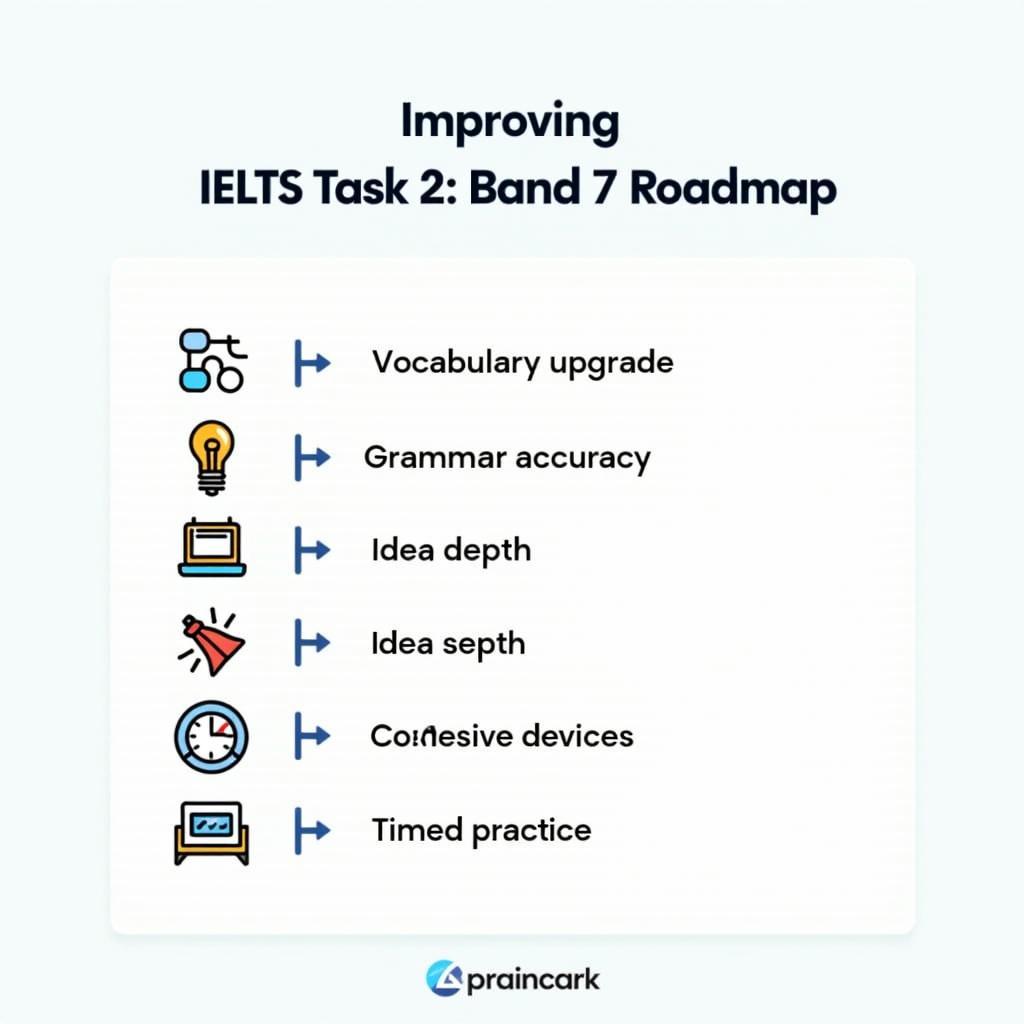 Chiến lược nâng điểm IELTS Task 2 từ 6 lên 7 chủ đề minh bạch tài chính
Chiến lược nâng điểm IELTS Task 2 từ 6 lên 7 chủ đề minh bạch tài chính
5. Từ vựng quan trọng cần nhớ
| Từ/Cụm từ | Loại từ | Phiên âm | Nghĩa tiếng Việt | Ví dụ (English) | Collocations |
|---|---|---|---|---|---|
| transparency | n. | /trænˈspærənsi/ | tính minh bạch | Transparency helps deter fraud. | enhance/increase transparency |
| accountability | n. | /əˌkaʊn.təˈbɪl.ə.ti/ | trách nhiệm giải trình | Public accountability builds trust. | ensure/strengthen accountability |
| financial transaction | n. | /faɪˈnænʃl trænˈzækʃn/ | giao dịch tài chính | Every financial transaction leaves a record. | cross-border transactions |
| traceability | n. | /ˌtreɪsəˈbɪləti/ | khả năng truy vết | Traceability reduces money laundering. | product/data traceability |
| audit trail | n. | /ˈɔːdɪt treɪl/ | dấu vết kiểm toán | An audit trail enables investigators. | maintain/create an audit trail |
| money laundering | n. | /ˈmʌni ˈlɔːndərɪŋ/ | rửa tiền | Laws target money laundering networks. | anti-money laundering (AML) |
| whistleblower | n. | /ˈwɪs.əlˌbloʊ.ər/ | người tố giác | Whistleblowers need legal protection. | protect/encourage whistleblowers |
| oversight | n. | /ˈoʊvərsaɪt/ | giám sát | Independent oversight is crucial. | regulatory/independent oversight |
| due diligence | n. | /ˌduː ˈdɪlɪdʒəns/ | thẩm định | Banks must perform due diligence. | conduct/perform due diligence |
| privacy safeguards | n. | /ˈpraɪvəsi ˈseɪfɡɑːrdz/ | biện pháp bảo vệ quyền riêng tư | Strong privacy safeguards are needed. | implement/privacy safeguards |
| data minimisation | n. | /ˌmɪnɪmaɪˈzeɪʃn/ | tối thiểu hóa dữ liệu | Data minimisation reduces risk. | apply/practice data minimisation |
| proportionality | n. | /prəˌpɔːrʃəˈnæləti/ | tính tương xứng | Measures must respect proportionality. | principle/test of proportionality |
| cashless society | n. | /ˈkæʃləs səˈsaɪəti/ | xã hội không tiền mặt | A cashless society is emerging. | move towards a cashless society |
| public scrutiny | n. | /ˈpʌblɪk ˈskruːtɪni/ | giám sát của công chúng | Spending is under public scrutiny. | invite/withstand public scrutiny |
| regulatory compliance | n. | /ˈreɡjələtɔːri kəmˈplaɪəns/ | tuân thủ quy định | Firms must ensure compliance. | ensure/monitor regulatory compliance |
Lưu ý phát âm: luyện nhấn trọng âm đúng để tránh nuốt âm khi nói.
6. Cấu trúc câu dễ ăn điểm cao
- Câu phức với mệnh đề nhượng bộ (Although/While/Even though + mệnh đề, mệnh đề chính)
- Công thức: Although/While + S + V, S + V.
- Ví dụ (từ bài Band 8-9): While a cashless economy can feel intrusive, the importance of transparency in financial transactions is difficult to overstate.
- Vì sao ghi điểm: Tạo tương phản sắc nét, mở đoạn mạch lạc.
- Ví dụ bổ sung: Although transparency deters crime, it may deter lawful behaviour too. While data help regulators, they can harm privacy.
- Lỗi thường gặp: Dùng “despite” + mệnh đề (sai); đúng là “despite + V-ing/N”.
- Mệnh đề quan hệ không xác định (Non-defining relative clauses)
- Công thức: Danh từ chung, which/who + mệnh đề bổ sung, mệnh đề chính.
- Ví dụ: …data minimisation, which reduces unnecessary exposure, is essential.
- Ghi điểm: Bổ sung thông tin học thuật súc tích.
- Ví dụ: Judicial warrants, which limit arbitrary access, protect rights. Audit trails, which document flows, aid enforcement.
- Lỗi: Quên dấu phẩy; dùng “that” thay “which” trong mệnh đề không xác định.
- Cụm phân từ (Participial phrases)
- Công thức: V-ing/V-ed + cụm, S + V.
- Ví dụ: When funds leave a digital footprint, regulators can deter corruption… (hoặc) Exposing illicit flows, transparency strengthens trust.
- Ghi điểm: Nén thông tin, tăng nhịp điệu.
- Ví dụ: Balancing interests, policymakers adopt safeguards. Backed by evidence, this claim is persuasive.
- Lỗi: Treo chủ ngữ (dangling modifier).
- Câu chẻ (Cleft sentences)
- Công thức: It is/was + thành phần cần nhấn + that/who + mệnh đề.
- Ví dụ: It is not transparency that violates privacy; it is indiscriminate access.
- Ghi điểm: Nhấn mạnh lập luận cốt lõi.
- Ví dụ: It is accountability that sustains trust. It was data minimisation that made the policy acceptable.
- Lỗi: Lạm dụng; dùng khi cần nhấn trọng tâm.
- Câu điều kiện nâng cao (Third/ Mixed / If + modal)
- Công thức: If + S + V (hiện tại), S + modal + V (chỉ khả năng/khuyến nghị).
- Ví dụ: If transparency is paired with proportionate controls, its benefits will outweigh risks.
- Ghi điểm: Thể hiện lập luận điều kiện – chính sách.
- Ví dụ: If access is tiered, abuse is less likely. If warrants are required, misuse can be curtailed.
- Lỗi: Sai thì sau if; thiếu modal phù hợp.
- Đảo ngữ nhấn mạnh (Inversion)
- Công thức: Only when/Not until/Rarely/Seldom + trợ động từ + S + V.
- Ví dụ: Only with robust safeguards can transparency coexist with privacy.
- Ghi điểm: Nhấn mạnh luận điểm, đa dạng hóa cấu trúc.
- Ví dụ: Seldom has policy struck a perfect balance. Not until oversight improves will trust return.
- Lỗi: Sai vị trí trợ động từ; đừng lạm dụng.
7. Checklist Tự Đánh Giá
- Trước khi viết:
- Xác định dạng đề: discuss both views + opinion.
- Gạch đầu dòng 2-3 ý mạnh cho mỗi phía (minh bạch vs riêng tư).
- Chọn lập trường và điều kiện đi kèm (safeguards nào?).
- Trong khi viết:
- Mỗi đoạn 1 ý chính + ví dụ cụ thể (audit trail, encryption, warrants).
- Dùng từ nối hợp lý: However, By contrast, In my view, Ultimately.
- Kiểm tra mạo từ (a/an/the), thì, chủ-vị.
- Sau khi viết:
- Cắt lặp từ; thay bằng đồng nghĩa/collocations.
- Soát lỗi dấu phẩy trong mệnh đề quan hệ.
- Đếm từ: 270–320 là an toàn.
- Mẹo quản lý thời gian:
- 5 phút dàn ý, 25 phút viết, 5 phút soát lỗi.
- Viết câu chủ đề trước, ví dụ sau; đừng sa đà mở bài.
- Ưu tiên rõ ràng trước hoa mỹ.
Kết bài
Minh bạch trong giao dịch tài chính đã trở thành trục xoay của nhiều đề IELTS, vì nó chạm đến chống tham nhũng, trách nhiệm giải trình và quyền riêng tư. Khi bạn nắm chắc cấu trúc lập luận cân bằng, vốn từ học thuật và các mẫu câu then chốt, bạn sẽ xử lý trơn tru mọi biến thể của importance of transparency in financial transactions. Lộ trình thực tế: 2–3 tuần luyện ý tưởng theo “khung lợi ích – rủi ro – điều kiện”, 10–12 bài viết có phản hồi, và 3 lần mô phỏng đúng thời gian sẽ giúp bạn tăng độ chắc tay. Hãy chọn một đề hôm nay, lập dàn ý 5 phút và viết ngay; sau đó chia sẻ bản viết để nhận góp ý từ cộng đồng.
Tài nguyên gợi ý: bài mẫu theo band, danh sách collocations, và bộ đề luyện chủ đề cashless society, privacy và public accountability. Khi thực hành đều đặn, bạn sẽ thấy luận điểm sắc sảo hơn, từ vựng chính xác hơn, và band điểm cải thiện vững chắc.
